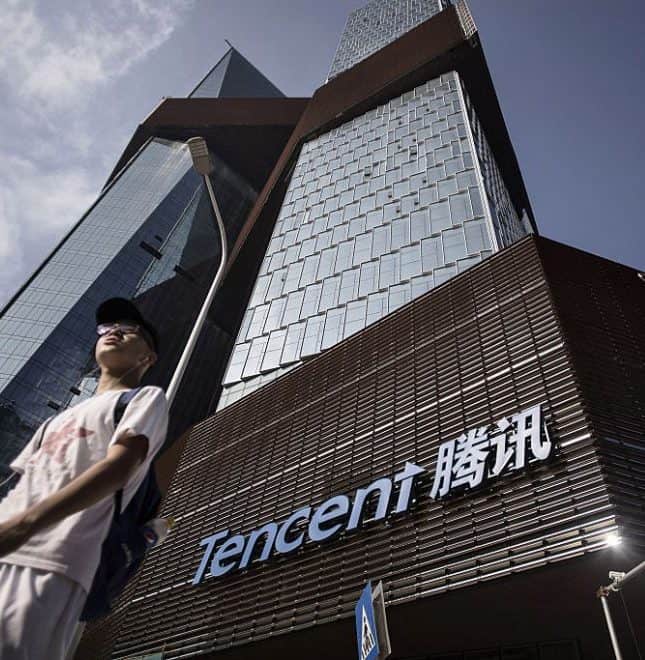Find out the week’s top mobile stories from around the world.
This week.. GCHQ warns on Black Friday cyber-threat, Thanksgiving e-commerce spend to top $3.7B, French privacy ruling may mean changes to data consent and much more.

GCHQ warns on Black Friday cyber-threat
BBC
The National Cyber Security Centre, part of the GCHQ intelligence service, is issuing advice to shoppers of the risk of “malicious” online threats.
It is the first such official cyber-warning in the run-up to the Christmas shopping season.
“It’s vital that knowledge is shared,” says Ian Levy of the cyber-agency.
The cyber-wing of the GCHQ communications centre says it wants to start a “national cyber-chat” on Black Friday when billions are spent on online shopping.
Read more…
Thanksgiving e-commerce spend to top $3.7B, mobile accounting for one-third of sales
Tech Crunch
Thanksgiving, a day when brick-and-mortar stores tend to be closed, has become a big one for online spending, and when all is tallied, US consumers will have spent $3.7 billion for the day, according to analysts, with smartphones driving 54.4 percent of traffic to retail sites and 36.7 percent of all e-commerce sales.
Adobe, which puts out real-time analytics tracking e-commerce sales, said that as of 2pm Pacific Time, $1.75 billion was spent online, up from $406 million at 7am — representing respective growth of 28.6 percent growth and 23.2 percent over the same periods in 2017.
At this rate, Adobe said it believes that sales on Thursday will total a record $3.7 billion, versus $2.9 billion a year ago. Notably, Adobe has revised this figure up twice since projecting $3.1 billion for Thanksgiving earlier this month.
Read more…
French Privacy Ruling Lays Foundations For Changes To Data Consent
Mobile Marketing Magazine
A ruling in France against a small ad tech firm at the end of October could prove to be a defining moment for data privacy and advertising in Europe.
France’s data protection authority, the Commission nationale de l’informatique et des libertés (CNIL), issued a warning [in French] to Vectaury – which collects and processes geolocation data for programmatic advertising – because its consent management platform (CMP) used to collect consent from publisher and SSP partners doesn’t give users the opportunity to provide explicit consent.
The French firm’s consent management platform was created using IAB Europe’s GDPR Transparency and Consent Framework, which could now be in question.
Read more…
Tech giants under threat as online privacy for kids becomes a reality
Irish Times
Future generations will look back in astonishment at the lackadaisical attitude shown towards protecting children’s privacy online in recent years, according to a leading Irish tech entrepreneur.
Dylan Collins, who founded and leads “kid tech” company SuperAwesome, said people will see this issue in much the same way as we now view smoking or drink-driving. The issue of children’s online privacy is now finally coming to the fore, he added, thanks to increased regulations, and in the US at least, more private class actions.
“Kids growing up now will know that unlocking and releasing your personal data into an open internet where it is then shared by thousand upon thousands of companies is a really dumb idea. They will look back on our generation and think, ‘What was wrong with you people?’” said Collins.
Read more…
Indian mobile phone makers shift focus to exports; 5 big numbers show their massive growth ambition
Financial Express
While Narendra Modi-government’s ambitious ‘Make in India’ initiative, aimed at making India the global manufacturing hub, has made an impressive progress, Indian mobile phone makers are now seeking a paradigm shift to move far beyond — ‘Make in India for Global’. Buoyed by the growing demand for mobile devices on domestic turf, the mobile handset companies in India now want to tap the global markets by shifting focus to exports of the home-made phones.
To fuel further growth, the mobile handset companies are now seeking a 10-year tax holiday and reforms to focus on exports that can enable them to grow by over eleven-fold to $230 billion by 2025, a joint report by Indian Cellular and Electronics Association (ICEA) and McKinsey, that has been submitted to the government, showed.
Read more…
YouTube has started testing ‘ad pods’: 2 skippable ads delivered back-to-back
Marketing Land
YouTube announced on Wednesday a new “ad pod” delivery experience that will show two skippable pre-roll or mid-roll ads — one right after the other. Currently being tested on desktop only, ad pods will soon roll out on mobile and connected TVs. The units create an ad experience that’s much more like TV.
YouTube says its research has shown that fewer ad break interruptions correlate with better user metrics, including lower rates of content abandonment and higher rates of ad viewing. By combining ads into one “pod” in a video, rather than showing a pre-roll and mid-roll ad in a video. With this test, YouTube hopes to see viewers, particularly those watching longer content, will be more likely to sit through the ads and stick with the content they’re watching.
Read more…
Instagram Talks New Shopping Features And Why It Doesn’t Have A Buy Button
PYMNTS
Even people without a mind for business remember that motto as one of the guiding principles of retail and other forms of commerce — absorbed, perhaps, in a high school class or via any number of articles, TV shows, commercials or bits of pop culture that have riffed on that theme. (Location, in fact, is one of the major themes of those enduring if not-quite-honest HGTV home-buying and property-renovation shows, is it not?)
That still holds true, of course, but these days, location increasingly means bringing the store to the consumer — and offering product browsing and shopping opportunities even when consumers aren’t explicitly shopping.
Indeed, that is one of the main ideas behind Instagram’s recent move to offer three new ways for users of the Facebook-owned photo-sharing social media platform to discover products. PYMNTS recently caught up with Paige Cohen, manager at Instagram to learn more about Instagram’s updates to their shopping features.
Read more…
Chinese gaming giant Tencent looks to Southeast Asia with Sea partnership amid regulatory uncertainties at home
Tech In Asia
Tencent Holdings, China’s biggest social media operator and games publisher, has partnered with Singapore-based gaming and e-commerce company Sea to publish its game titles in Southeast Asia as the Chinese tech giant looks to the international market amid stalled growth at home.
The deal grants Garena, Sea’s digital entertainment arm, the right of first refusal to publish Tencent’s mobile and PC games in Indonesia, Taiwan, Thailand, the Philippines, Malaysia, and Singapore for five years, according to a statement issued on Monday by Sea.
“Garena operates across some of the fastest-growing markets globally and has a deep understanding of the dynamics in these regions. Our long-term partnership and collaborations with Garena on key titles have been successful, and we are glad to further deepen our strategic partnership through this arrangement,” Martin Lau, president of Tencent, said in the statement.
Read more…
Mastercard’s Veronika Colucci says the wearable payments revolution is here
Internet of Business
The shift to tokenisation is central to the transformation currently taking place in payments. Tokenisation is the process by which the original card number is replaced with a surrogate value, called a token. These tokenised card details are then digitised and, along with the associated data and card art, delivered onto a device or the cloud.
For the end-user, this means greater convenience at the checkout, or other contactless payment point, and greater control and security through the activation and deactivation of tokens.
Mastercard’s own tokenisation platform, the Mastercard Digital Enablement Service (MDES), allows issuers and retailers to manage tokenisation and digitisation to create EMV-like security for every transaction.
Read more…
Q&A: Reality Clash & the Arrival of Blockchain-Powered AR
Gaming Economy
Reality Clash is an in-development mobile AR shooter that integrates blockchain, cryptocurrencies, dynamic in-game advertising, and geo-mapping technology into the gameplay experience it offers.
Yes… there are a lot of tech buzzwords in that opening line. We’d only need to throw in AI and VR and it might seem like a parody of contemporary marketing parlance. But in truth, there’s often a meaningful reality hidden somewhere behind the hype of headline-grabbing tech trends. And it just so happens that Reality Clash offers a fascinating working example of a potential that has been talked about for many years now. Namely ‘crypto-gaming’.
As a piece of entertainment, Reality Clash offers an AR first-person shooter set in a future where hackers and cryptocurrency are reshaping the world around them.














